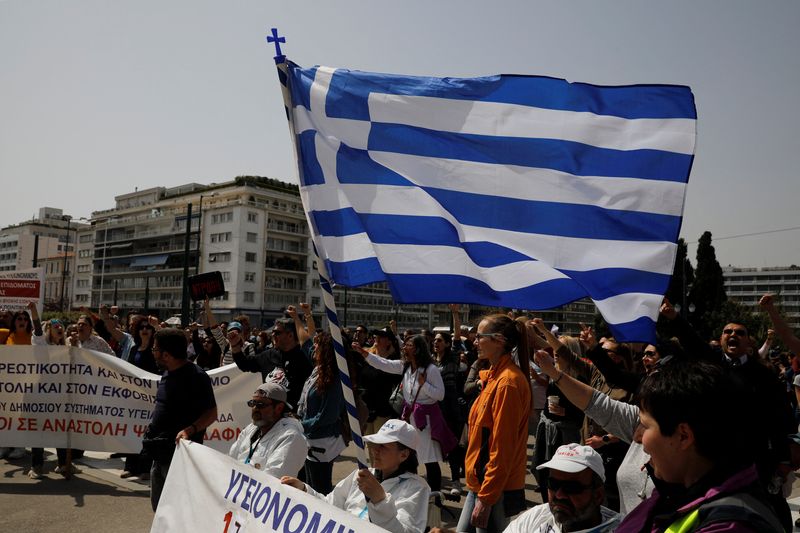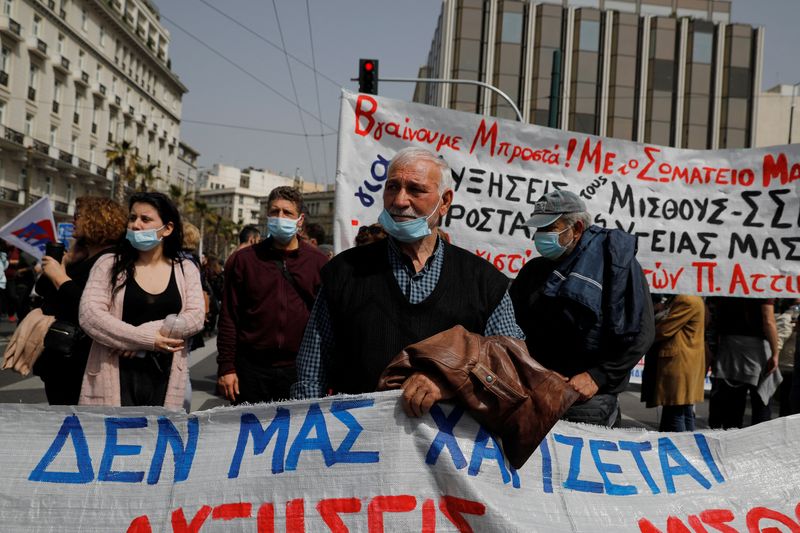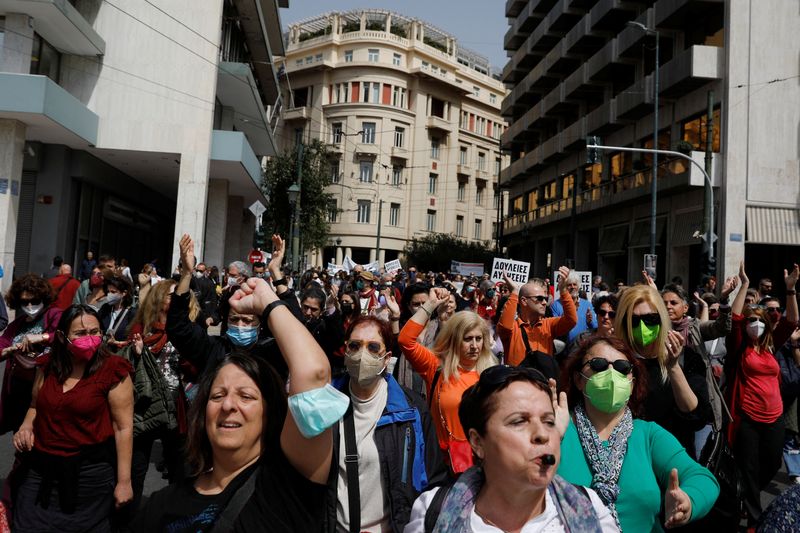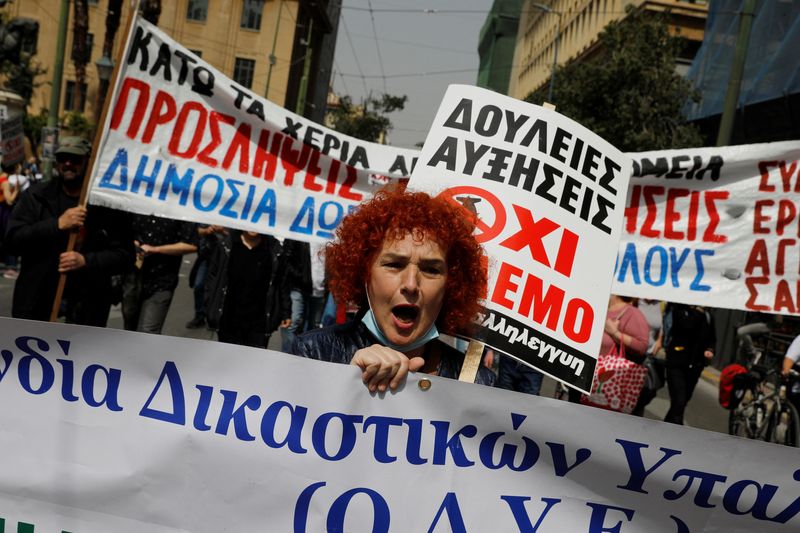By Phoebe Fronista and Karolina Tagaris
ATHENS (Reuters) -Thousands protested in Athens on Wednesday during a day-long nationwide strike over what workers call a “deepening crisis” of rising prices and squeezed incomes, disrupting transport, ferries, schools and public hospitals.
The country’s two biggest labour unions, representing about 2.5 million public and private sector workers, called the general strike that culminated in a rally outside parliament.
For many of those there, everyday life has become unaffordable.
“Our life now is just being in debt,” said Georgios Alexandropoulos, a 60-year-old courier worker.
“I owe the electricity company and my landlord, I’m two months behind in rent, and I owe the last two electricity bills. Soon we will be in debt to everyone…we can’t go on like this.”
Another protester, 57-year-old psychologist Michalis Tokaras, said he was forced to “cut back on everything”.
“We have to choose between paying our mortgage or paying bills. We’ve reached the bottom,” he said.
Police estimate at least 10,000 people turned up for the rally. “We won’t compromise with inflation,” one banner read.
Greece emerged from a decade of financial crisis in 2018, only for the coronavirus pandemic to bring global travel to a standstill two years later, hurting its vital tourism industry.
Now, soaring energy prices, exacerbated by sanctions against Russia since its invasion of Ukraine in February, have further hurt workers’ pockets.
“For the last 14 years, workers have been carrying the burden of a deep crisis that has affected everyone’s incomes and lives,” said GSEE, the country’s umbrella private sector union.
“As the years go by the crisis is constantly deepening, the burdens remain, our rights are shrinking.”
Greece’s annual consumer inflation surged to a 25-year high of 7.2% in February on the back of rising energy, housing and transportation costs.
The government has spent about 3.7 billion euros ($4 billion) since September to alleviate the burden of rising energy and fuel costs for farmers, households and businesses.
GSEE said in March it had proposed a 13% increase in the monthly gross minimum wage to 751 euros due to inflation.
The conservative government raised the minimum wage by 2% to 663 euros in January and Prime Minister Kyriakos Mitsotakis has promised a second, larger increase from May 1.
For the striking workers, the measures do not go far enough.
“Recently, our salaries – for those of us who have jobs – last for only half a month’s worth of expenses,” said Christos Katsikas, a 60-year-old school teacher.
($1 = 0.9191 euros)
(Writing by Karolina Tagaris; Editing by Emelia Sithole-Matarise)























